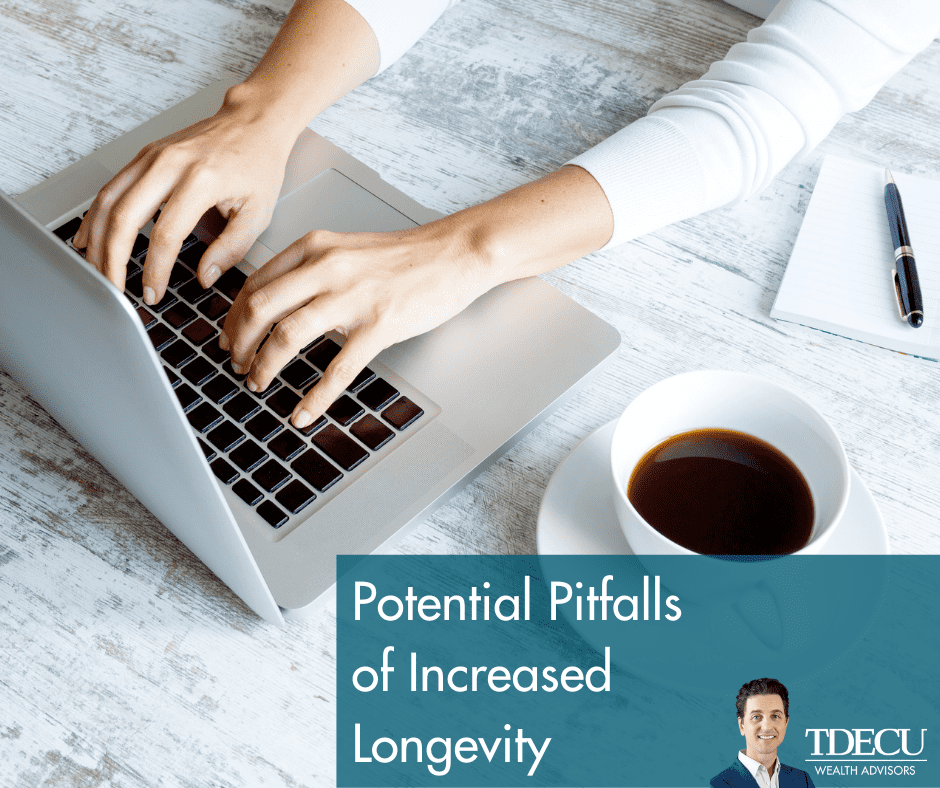According to recent research from the University of Washington, it might be possible for humans to experience a lifespan of 125 to 130 years by the end of the 21st century.1 While this is great news for those who hope to see five or six living generations of their family, it may throw a major wrench into retirement planning. Here are some unexpected risks of increased longevity and how to plan for a longer-than-expected retirement.
Risks of Longevity
This UW study calculated the general probability of living past 110 during the years 2020 to 2100 and attempted to identify the longest lifespan that might be possible during this period. The researchers feel confident that the current record of 122-and-a-half years for the maximum reported age at death in 2021 will be broken by 2100. It is possible that someone may live to between 124 and 127 by then.
One of the main risks of a longer lifespan is the chance of outliving your money. It's not a given that humans' ability to work full-time or even part-time may increase in proportion to having a longer lifespan. Even someone who is able to push off retirement to age 75 or 80 may be facing a full four decades of retirement if they live to age 120. In 2021, the average U.S. lifespan is 78.4 years. 2
And although the current Social Security retirement age is 67, with benefits available as early as age 62, this figure may be too low if the average American lives to age 100.3 As the average lifespan grows longer, it's possible that the Social Security retirement and Medicare programs may need to retool their eligibility thresholds to remain relevant.
Planning for a Long Retirement
Even if you don't expect to live to 120 (or 100), it's a good idea to plan for a longer-than-expected retirement. One way to do that is to revisit your retirement assumptions, including your expected withdrawal rate.
A strategy to consider is that you might withdraw some portion from your portfolio each year without significantly reducing it.4 An estimate of the sustainable withdrawal rate (SWR) differs for each person. The concept is to try to keep your principal about the same while providing you with regular income from a 401(k) or IRA. Financial performance like this is never guaranteed. Individual results may vary considerably from any projections.
However, SWR is just a concept to consider. If the stock market goes down during your first few years of retirement, you could end up withdrawing a more significant percentage of your portfolio. To plan for a long retirement, consider reducing your SWR so you might not be as impacted during down markets and understand that financial planning is an ongoing process. Assumptions should continue to be monitored and retested to and through retirement.
Have specific questions? Don't hesitate to reach out to me today
Wes Garner, CRPC
Principal Wealth Strategist
(281) 269-8669
wgarner@tdecu.org

Important Disclosures:
The opinions voiced in this material are for general information only and are not intended to provide specific advice or recommendations for any individual. To determine which investment(s) may be appropriate for you, consult your financial professional prior to investing. All performance referenced is historical and is no guarantee of future results. All indices are unmanaged and cannot be invested into directly.
Investing involves risks including possible loss of principal. No investment strategy or risk management technique can guarantee return or eliminate risk in all market environments.
All information is believed to be from reliable sources; however LPL Financial makes no representation as to its completeness or accuracy.
2 https://datacommons.org/place/country/USA?utm_medium=explore&mprop=lifeExpectancy&popt=Person&hl=en
3 https://www.ssa.gov/benefits/retirement/planner/agereduction.html
4 https://www.investopedia.com/terms/s/safe-withdrawal-rate-swr-method.asp
LPL Tracking #1-05181149
